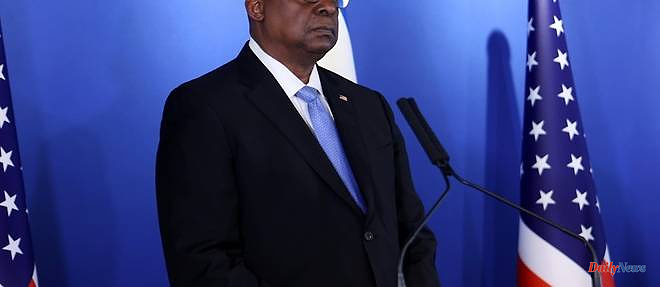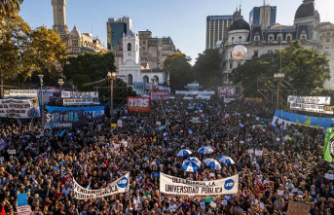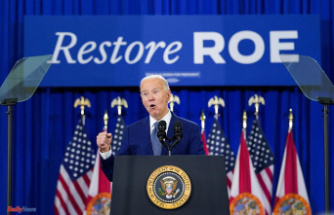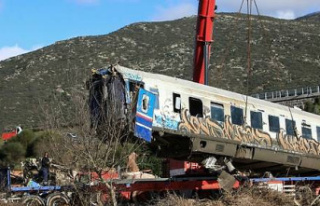The head of the Pentagon said Thursday in Tel Aviv his concern over recent abuses by Jewish settlers in the West Bank and pleaded for a "de-escalation" amid the inexorable rise in violence between Israelis and Palestinians.
"We are particularly concerned about the violence of [Jewish] settlers against Palestinians," US Defense Secretary Lloyd Austin said during a brief visit to Tel Aviv, referring to settler abuses that burned down February dozens of buildings and cars in the northern West Bank after the killing of two of their own by a member of the Islamist movement Hamas.
While reaffirming 'unwavering' US support for Israel's security, Austin pleaded for 'de-escalation' as Israeli-Palestinian conflict sees sharp uptick in violence since taking office in late December of one of the most right-wing governments in the history of Israel, under the leadership of Prime Minister Benjamin Netanyahu.
Thursday began with the death of three armed Palestinians, including two members of Islamic Jihad, killed in the early morning in an Israeli military raid in the northern West Bank, territory occupied by Israel since 1967.
It ended with the death of a member of the armed wing of Hamas, another Palestinian Islamist movement, shot dead in the evening after shooting three people in a cafe in Tel Aviv.
Washington has "strongly condemned" the attack, wishing "a full and speedy recovery to the injured" and reiterating its "unwavering support for Israel's security", according to a tweet from the spokesman for the American diplomacy Ned Price.
Since the beginning of the year, the Israeli-Palestinian conflict has claimed the lives of 76 Palestinians (including members of armed groups and civilians, including minors), 12 civilians (including three minors) and one Israeli policeman, as well than a Ukrainian, according to an AFP tally compiled from official Israeli and Palestinian sources.
The United States remains "firmly opposed to any act likely to cause more insecurity, which includes the expansion of Jewish settlement" in the West Bank, Mr. Austin said after a meeting with his Israeli counterpart Yoav Gallant.
To his host, who once again affirmed Israel's determination to "take all necessary measures to prevent Iran from obtaining nuclear weapons", Mr. Austin recalled the position of the government of President Joe Biden according to which “Diplomacy is the best way to prevent Iran” from getting there, but Washington “will never allow Iran to acquire” the atomic bomb.
Mr. Austin, whose visit had to be cut short because of demonstrations against the justice reform project that has divided the country for more than two months, also allowed himself a warning, already formulated by Mr. Biden, on this project, recalling the importance, in a democracy, of "independent justice" and the need for "consensus" before "any fundamental change".
Thursday had been declared in Israel "national day of resistance against the dictatorship" by the opponents of the reform, and these once again showed their mobilization.
By midday, more than 65,000 people demonstrated across the country according to an estimate by TV Channel 13 (private), showing strong turnout across the Israeli population.
The protesters notably blocked several hours to cries of "Democracy!" and "Freedom!" access to Ben-Gurion International Airport, where passengers wishing to access or exit the terminals were forced to do so on foot.
Thousands of people carrying the Israeli flag demonstrated in several places in Tel Aviv, including blocking the main urban highway.
Hundreds of rallies took place across the country from morning until night, according to footage from Israeli television.
The coalition supporting Mr. Netanyahu is trying to pass legislation that would effectively give him the power to appoint judges and severely limit the prerogatives of the Supreme Court, including its ability to invalidate laws.
Since the announcement of the text in early January, massive demonstrations have taken place in the country.
According to its detractors, the text threatens the democratic character of the State of Israel. The government affirms that the reform is necessary to restore a balance of power between elected officials and an "independent" but not "omnipotent" justice, in the words of Mr. Netanyahu, who accuses the Supreme Court of being politicized.
Israeli President Isaac Herzog, who plays an essentially ceremonial role, called Thursday evening to stop the reform in court immediately, considering that it was a "threat to the foundations of democracy". Engaged in mediation between the majority and the opposition, he called on the two camps to agree on a "common project".
10/03/2023 03:53:43 - Tel Aviv (AFP) © 2023 AFP












